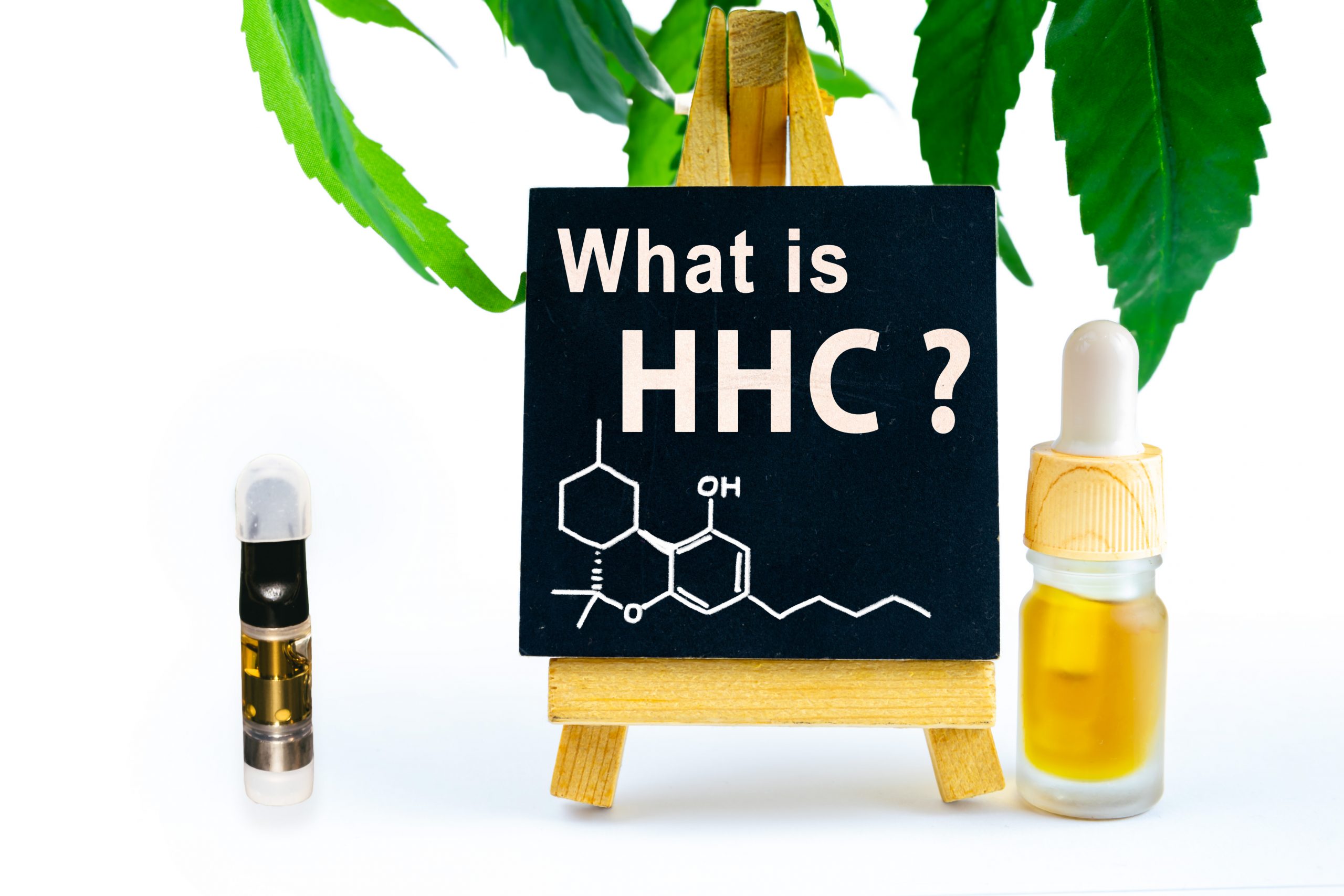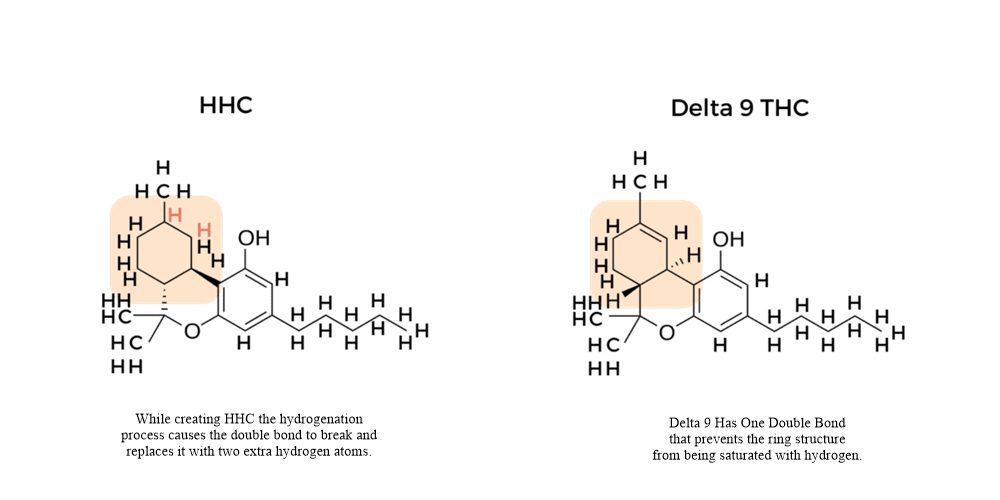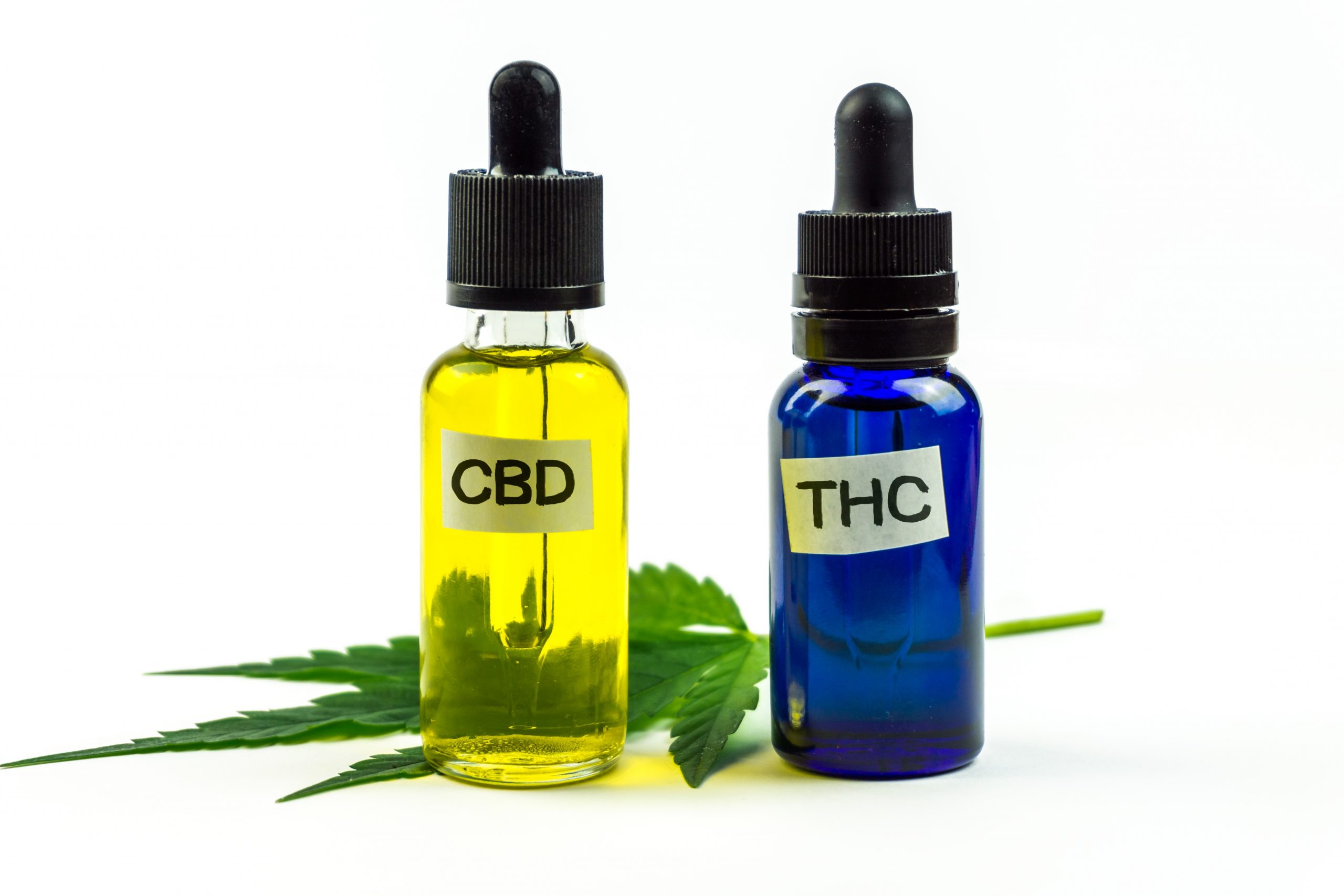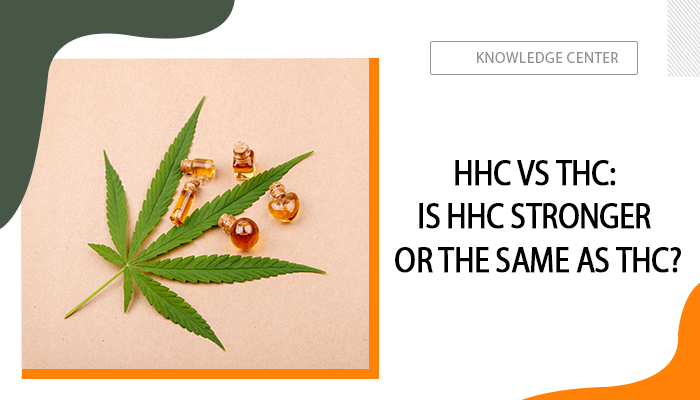Understanding HHC & the Differences Between THC
When it comes to cannabinoids, you must have heard of these two compounds: HHC (Hexahydrocannabinol) and THC (Tetrahydrocannabinol). While both offer unique properties that have various effects on the human body, the differences and benefits between HHC and THC can be confusing for individuals seeking the right cannabis experience. In this article, we'll take an in-depth look at these compounds, exploring their individual characteristics and capabilities. Whether you're a cannabis enthusiast, a medical professional, or simply curious about HHC vs THC, this article can answer you all.
Table of Contents
What Is HHC
Similar to common cannabis compounds such as CBD and THC, HHC (Hexahydrocannabinol) is another cannabinoid that occurs naturally in cannabis plants but in small quantities. Chemically, HHC shares a structural similarity with THC, except that it contains more hydrogen atoms and lacks double bonds in the cyclohexyl ring. HHC has gained attention in recent years due to its therapeutic properties and unique effects on the body's endocannabinoid system.

Back in 1944, chemist Roger Adams accomplished the process of converting THC to HHC, known as hydrogenation by adding hydrogen atoms to delta-9 THC. Decades later, just like delta 8 THC and delta 10 THC, HHC can be chemically derived from other cannabinoids. The most commonly used approach to create commercial HHC is to synthesize it from hemp-derived CBD in a laboratory setting through chemical processes.
Does HHC Get You High
It’s hard to answer this question. Theoretically speaking, unlike THC which binds with the CB1 receptors in the brain and nervous system, resulting in euphoria and altered perception, HHC is considered much less psychoactive. However, based on the research and data collected so far, users do report similar high effects as consuming ordinary THC - something between delta 8 and delta 9 THC.
Therefore, if you wonder which is stronger when comparing HHC vs THC, the safe bet is HHC might be the same as THC but it’s definitely not stronger than that, as least for now.
Benefits of HHC
The potential benefits of HHC are still being explored through research, and while it is a lesser-known cannabinoid, it has shown promise in certain areas, including:
- Analgesic Properties: HHC has shown potential as an analgesic, meaning it may have pain-relieving properties. Some users have reported experiencing pain relief when using HHC, making it a possible option for managing chronic pain.
- Anti-Inflammatory Effects: Like other cannabinoids, HHC has displayed anti-inflammatory properties in preclinical studies. This suggests it could be useful in reducing inflammation associated with various conditions.
- Appetite Stimulation: Similar to THC, HHC may have the potential to stimulate appetite, making it beneficial for individuals dealing with appetite loss due to certain medical conditions or treatments.
- Neuroprotective Properties: Some preclinical studies suggest that HHC might have neuroprotective effects, potentially benefiting individuals with neurodegenerative conditions.
Drawbacks & Potential Risks of HHC
Since HHC is a lesser-known cannabinoid, research on its drawbacks and potential risks is limited. However, as the effects of taking HHC are similar to those of THC, some potential drawbacks and risks of HHC may include:
- Impaired memory and concentration
- Dry mouth
- Red eyes
- Increased heart rate
- Anxiety and paranoia
- Coordination impairment
- Dizziness and lightheadedness
Is It Legal to Use HHC
Thanks to the 2018 Farm Bill made by Congress, hemp plants and their derivatives are federally legal as long as they contain less than 0.3 percent delta 9 THC. The 9th U.S. Circuit Court of Appeals confirmed the legality of delta 8 THC under the Farm Bill's definition, which likely extends to HHC as well, as long as it stays within the THC concentration limit. However, individual states have the authority to ban HHC if its popularity poses a threat to the legal cannabis market, similar to what has happened with delta 8 THC.
HHC vs. THC: What's the Difference
To grasp the distinctions between HHC and THC, let's explore their chemical structures and how they interact with the endocannabinoid system.
1. Chemical Structures

Image source: shamanbotanicalscbd.com
HHC and THC are both cannabinoids, but their molecular structures are different. THC (Tetrahydrocannabinol) has a cyclic ring with five carbon atoms, whereas HHC (Hexahydrocannabinol) has an additional hydrogen atom, resulting in a six-membered ring. This slight variation in structure leads to varying effects on the body's receptors.
2. Psychoactive Properties
One of the most significant differences between HHC and THC is their psychoactive properties.
2.1. THC: The Psychoactive Cannabinoid
THC is renowned for its psychoactive effects, responsible for the "high" feeling often associated with cannabis use. When THC binds with the CB1 receptors in the brain and nervous system, it can induce euphoria, altered perception, and relaxation.
2.2. HHC: The Non-Psychoactive Cannabinoid
On the other hand, HHC is considered non-psychoactive, meaning it doesn't produce the intoxicating effects commonly linked to THC. Instead, HHC interacts more subtly with the body's endocannabinoid system, offering potential therapeutic benefits without the psychoactive high.
3. Medical Benefits
Both HHC and THC have shown promise in various medical applications.
3.1. THC Medical Benefits
THC is well-known for its potential to alleviate pain, reduce nausea, stimulate appetite, and address symptoms associated with certain medical conditions, such as cancer and multiple sclerosis.

3.2. HHC Medical Benefits
While research on HHC is still in its early stages, it has shown potential as an analgesic and anti-inflammatory agent. Additionally, its non-psychoactive nature makes it appealing to patients seeking symptom relief without the euphoric effects of THC.
Conclusion
In conclusion, understanding the differences between HHC and THC is essential for making informed decisions about cannabis use. While THC offers psychoactive effects and numerous medical benefits, HHC provides a less-psychoactive alternative with potential therapeutic properties. Whether seeking relief from medical conditions or exploring the recreational aspects of cannabis, knowledge of HHC and THC can help us navigate the cannabis landscape more confidently.
FAQs about HHC vs. THC
- Is HHC safer than THC for medical use?
HHC's non-psychoactive nature may make it a safer option for medical use, but further research is needed to confirm its safety and efficacy fully.
- Can HHC and THC be used together?
Yes, some users combine HHC and THC for a synergistic effect. However, it's essential to understand the potential interactions and start with lower doses.
- Does HHC show up in drug tests?
HHC may not show up on standard THC drug tests due to its different chemical structure. However, specialized tests could detect it.
- What are the potential side effects of THC?
Common side effects of THC include dry mouth, red eyes, impaired memory, and altered perception. In some cases, higher doses may lead to anxiety or paranoia.
- Is HHC legal everywhere?
HHC's legal status varies by region. While it may be legal in some places, it is crucial to understand local regulations before use.
- Can HHC replace THC in medical treatments?
While HHC shows potential for medical use, it's not a direct replacement for THC in all cases. The choice depends on individual needs and preferences.




